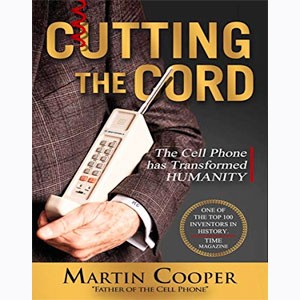The Internet of Things (IoT) is a network of interconnected, data-exchanging physical devices. This network has seen immense development in recent years, spreading across many sectors, industries, and applications. The real estate market is no different. This article will shed light on the future of this symbiotic relationship by discussing the impact of IoT devices on the residential, commercial, and development sectors of the real estate industry.

IoT Development In Homes
Numerous households have adopted intelligent solutions for day-to-day tasks as smart home technology has garnered significant traction. IoT devices are making the concept of a futuristic home a daily reality, from automating illumination and temperature settings to remotely controlling appliances. As the world shifts toward sustainable living, energy management in contemporary residences has become essential. Among the ways IoT devices contribute to energy management are the following:
- Real-time energy monitoring: IoT devices monitor energy consumption in real time, providing detailed information on utilization patterns and empowering users to make educated decisions regarding energy conservation.
- Smart thermostats: Internet of Things (IoT)-enabled thermostats can learn user preferences, detect occupancy, and adjust temperature settings accordingly, resulting in more energy-efficient heating and cooling and decreased energy consumption.
- Demand response programs: IoT devices can communicate with utility companies to participate in demand response programs, thereby reducing energy consumption during peak demand periods and contributing to the grid’s balancing.
The demand for smart homes increases as discerning purchasers prioritize connected living more and more. The higher resale values of IoT-enabled properties make them an attractive investment option for households and real estate agents.
IoT In Commercial Structures
In commercial settings, IoT devices augment building automation systems. Integration of access control, security, and resource management optimizes operations. IoT also fosters flexible workspaces and productivity. Managers can fine-tune lighting, and temperature and monitor occupancy for improved work environments.
IoT In Construction And Construction
IoT devices’ real-time data and monitoring capabilities enable developers and construction companies to monitor project progress closely. Improve collaboration, and expedite communication. Consequently, they can optimize project costs and completion timelines. Construction sites present a unique set of hazards, and IoT-enabled safety equipment and wearable technology enable real-time monitoring of employees. This can facilitate a prompt emergency response.
Internet-of-things (IoT) devices provide a lot of data. When used properly, can provide priceless insights into how a property is used and how its occupants behave. Real estate professionals keep a competitive advantage by analyzing current market trends and performance data. IoT device adoption enhances key strategies for effective data-driven decision-making.
- Develop a comprehensive framework for data collection and analysis.
- Concentrate on pertinent metrics aligned with business objectives, such as occupancy rates, rental and lease rates, tenant satisfaction, duration on market, and return on investment.
- Promote internal collaboration and data source integration via cross-functional teams.
- Invest in data analytics tools to process and analyze data for insightful conclusions.
Data Security
However, transforming data into decisions can present a number of obstacles, such as data quality, confronting the complexity of analysis, and overcoming resistance to change; therefore, it is essential to implement data validation processes and seek out expertise as needed. As IoT devices proliferate in the real estate industry, data security and privacy concerns have also increased in importance.
It is more important than ever to implement robust security measures and protect sensitive data in order to maintain credibility and combat cyber threats. Includes encryption, access controls, network security, employee training, and an incident response plan. These precautions must be taken seriously because human error, third-party hazards, and obsolete systems are common causes of problems, so be proactive.
In conclusion
Indisputably, the impact of IoT devices on the real estate industry. The IoT revolution is reshaping how we live, work, and invest, from smart homes and commercial structures to sustainable development and data-driven decision-making. As the industry continues to adopt IoT technology, its potential to transform the real estate landscape becomes more evident. Forward-thinking stakeholders who recognize the value of IoT integration will profit from this technological wave, obtaining a competitive edge in a market that is constantly evolving.
Source: Forbes















